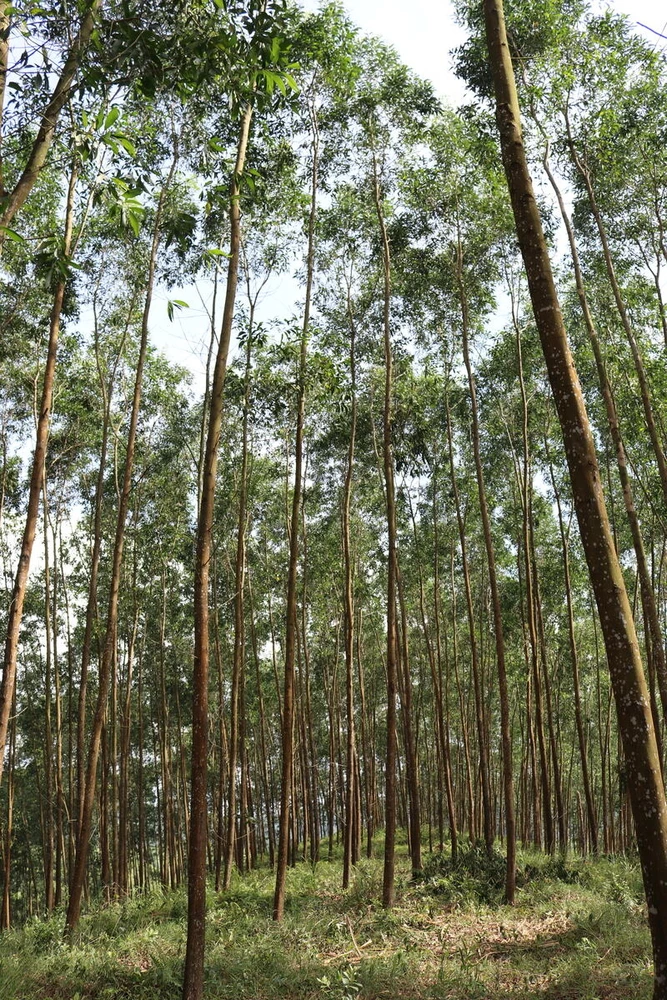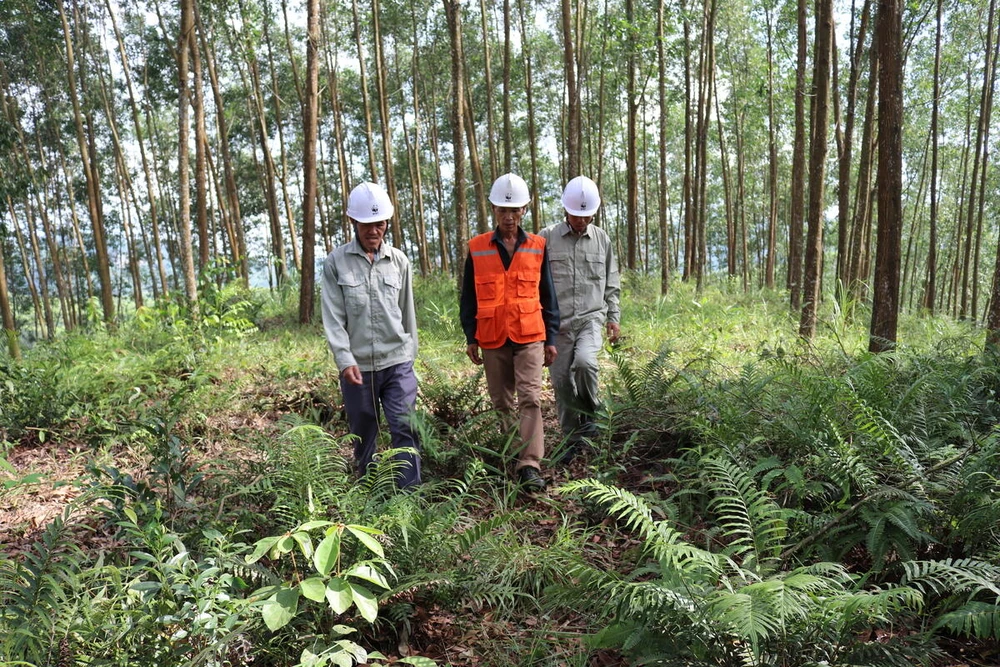Transforming the local forest industry in Central Vietnam
The Dutch Fund for Climate and Development (DFCD) intends to partner with wood manufacturer QNAFOR to scale up sustainable forestry plantations in Vietnam’s Central Annamites that will provide farmers with a better and more climate-resilient income.
The project has been put forward by the World Wide Fund for Nature Netherlands (WWF-NL) which, together with SNV Netherlands Development Organisation, manages the DFCD’s Origination Facility to develop new projects.
The Central Annamite Landscape is one of DFCD’s priority landscapes. It is one of the biggest coherent natural forests in continental Asia where WWF Vietnam together with its partners is implementing a innovative, collaborative and science-based approach adopted to save the region’s biodiversity and reduce the ecological footprint. It works with local communities, business and government in the protected areas on forest protection and restoration, but also on sustainable forest production and community forests.
As part of convening local stakeholders regularly in so called Multi Stakeholder Platforms, WWF Vietnam and the DFCD engaged with Quang Nam Industrial Wood Joint Stock Company (QNR). This producer of plywood, MDF and laminated wood is the parent company of QNAFOR, which stands for Quang Nam Forestry Development & Investment JSC. WWF-NL intends to sign a €270,000 grant funding agreement QNAFOR.
DFCD support
WWF-NL first supported the company in 2021, providing technical support to the company’s staff to successfully audit 2000 hectares for FSC certification, the leading standard for sustainable forestry. This project working with ten smallholder farmer groups representing 358 families was completed in March 2022.
With the new DFCD grant plus the company’s own €180,000 cash injection, QNAFOR will ready itself for scaling up its sustainable wood production by certifying another 1,600 hectares, implement FSC management software, and secure offtake agreements for its wood as part of its commitment to farmers to purchase their trees after four to seven years.

Impact
Smallholder farmers are currently growing acacia trees from poor quality seedlings. They tend to cut the trees before they are fully grown at seven to eight years. Some smallholders grow their trees even ten to twelve years to obtain more timber. They cut the trees after four years because they need the income and are afraid of the risk that a typhoon may damage their trees.
If they grow the trees from high-quality seedlings and leave them in the ground for five to seven years, the timber will be of a higher quality, fetching a substantially higher price. Also, as the trees grow older, they are far less prone to damage from natural disasters. After five years, an acacia tree can withstand a typhoon.
QNAFOR is working with the farmers to grow stronger acacia trees for longer. They can buy high-quality seedlings from QNAFOR’s own Seedling and Nursery Centre. The farmers receive a government subsidy to buy seeds for intercropping. Farmers can grow high-value medicinal plants between their trees.
The wood manufacturer commits itself to purchasing the trees from the farmers, so they no longer fear leaving the trees in the ground. It also provides materials and technical support to obtain FSC forest certification which will further improve the market value of the wood.
Scaling up
When the company has successfully completed its grant project with the DFCD, it is planning to apply for a €9.1 million loan from the DFCD to help fund its scale up. In the next five years, QNAFOR has the potential to source from 15,000 hectares of forest plantations of which 10,000 will be FSC certified.
It is seeking the DFCD loan to fund the expansion of the FSC certification, a production centre for high quality seedlings, as well as the construction of a FSC wood processing plant and a facility to produce wood pellets from waste products like roots, bark and leaves, which will be used as a sustainable fuel instead of coal.

Stuart Beavis, Regional Lead WWF DFCD Asia Pacific
“The DFCD is very happy to be working alongside QNAFOR on this much needed project in the Central Animates. This project will promote the conservation of biodiversity, protect the natural forests, support livelihood creation and transition Acacia plantations away from the existing monoculture. It is a true landscape project and is aligned with WWF Vietnam’s sustainable forestry vision and that of the provincial government.”
Doan Van Hung, CEO QNAFOR
“Quang Nam Forestry Development & Investment JSC is very proud to have our bankable project selected by the DFCD for support and funding. We will commit ourselves to working closely with DFCD under the support from WWF Vietnam to successfully implement our project in the coming time. It is our mission to contribute to the development of large FSC-certified timber plantations that are environmentally sustainable and economically efficient for the company and households’ groups in Quang Nam and in the Central Annamites Landscape.”
Contact
For more information, please contact Stuart Beavis, Regional Lead WWF DFCD Asia Pacific at sbeavis@wwf.org.hk.
In case you have any grievances in relation to this project of the DFCD’s Origination Facility, please contact us through our service desk at servicedesk@wwf.nl.
About QNR
Quang Nam Industrial Wood Joint Stock Company (QNR) is the largest supplier of plywood, laminated wood, MDF wood - industrial wood products to replace natural wood - in the Central Annamites region in Vietnam. Through its daughter company QNAFOR it is striving to become a central link in the value chain of producing sustainable FSC-certified timber in the Central Annamites Landscape.
